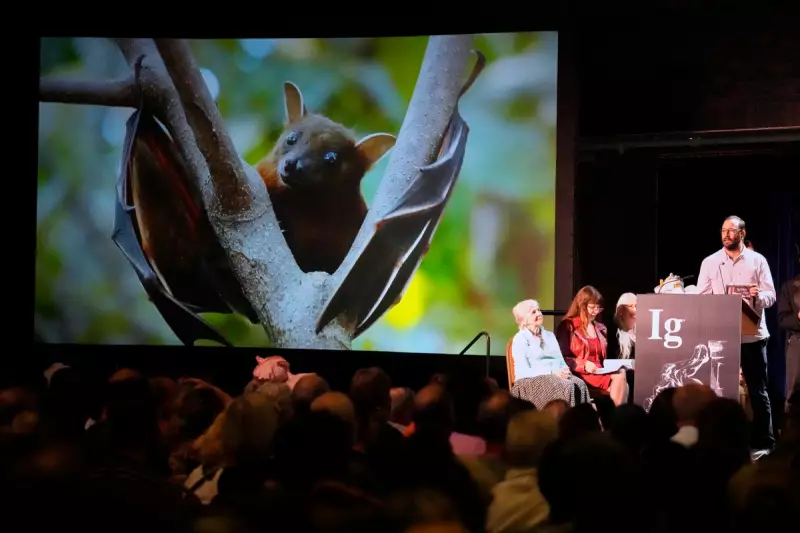
The 2025 Ig Nobel Prizes have once again celebrated the scientific studies that first make people laugh, then make them think. Held in a virtual ceremony from Cambridge, Massachusetts, this year's awards honoured research that questions the obvious and explores the improbable, proving that serious inquiry can come in delightfully unusual packages.
And the Winners Are...
The coveted Chemistry Prize was awarded to a team from the University of Cambridge for their groundbreaking—and utterly perplexing—work on the aerodynamic properties of artisanal cheese. Using a custom-built wind tunnel, Dr. Alistair Finch and his team meticulously measured the drag coefficients of Stilton, Cheddar, and a particularly 'flowable' Brie, publishing a paper that has left the culinary and physics worlds in equal parts awe and confusion.
In the Literature category, the prize went to an AI research group for developing a neural network capable of composing authentic-sounding, and often deeply melancholic, 18th-century sea shanties. The AI, named 'ShantyGPT', analysed thousands of historical naval songs to produce new works such as "The Ballad of the Leaky Algorithm" and "Oh, My RAM Is Failing Me."
The Spirit of Curiosity
Since their inception in 1991, the Ig Nobel Prizes have been organised by the scientific humour magazine Annals of Improbable Research. The awards honour achievements that, in the organisers' own words, "cannot or should not be reproduced." Yet, beneath the laughter lies a profound purpose: to honour unique curiosity, spark public interest in science, and celebrate the sheer fun of scientific inquiry.
The ceremony, while riotously funny, maintains the traditions of its more serious counterpart, the Nobel Prize. Genuine Nobel laureates traditionally present the awards to the winners, adding a touch of gravitas to the proceedings. This year was no different, with laureates beaming in from Stockholm to hand over the hand-assembled prizes.
Why This Matters
Far from being a mere parody, the Ig Nobels play a crucial role in the scientific ecosystem. They remind us that science isn't just about monumental, world-changing discoveries. It's also about asking quirky questions, challenging conventions, and finding joy in the process of discovery. These 'improbable' studies often pave the way for serious applications, encourage interdisciplinary thinking, and make science accessible and engaging to a global audience.
As the virtual curtain closed on the 2025 ceremony, the message was clear: in a world often dominated by grim headlines, there is still a vital place for wonder, humour, and the pursuit of knowledge—no matter how cheesy it might be.





